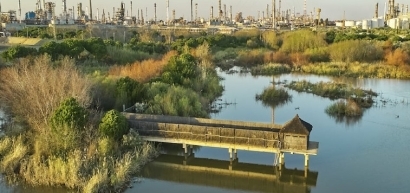
According to the company, "biofuels can reduce emissions by up to 80% throughout their life cycle (compared to conventional fuels) and increase energy independence and security of supply, which is so relevant in the current context."
The start of the production of "advanced biofuels" has been described by the company as a "milestone" that is part of its 2030 strategic plan, through which Cepsa intends to "promote the reduction of emissions from heavy transport, maritime , air and road, through the production of green molecules, mainly biofuels and green hydrogen."
Specifically, Cepsa aspires to lead the manufacture of biofuels in Spain and Portugal by 2030, with an annual production of 2.5 million tons. According to the company, the production of biofuels "is aligned with the set of Fit for 55 measures of the European Commission, whose objective is to promote the use of sustainable alternative fuels to reduce the intensity of greenhouse gas emissions,
With regard to this last case -air transport-, the legislative initiative called RefuelEU Aviation -remember from Cepsa- aims to "promote the supply and demand of aviation biofuels in the European Union, reaching a use of 2% in 2025 , 5% in 2030 and 63% in 2050".
Antonio Joyanes, director of the company's Energy Parks, “Cepsa has been producing biofuels in its refineries for more than 10 years and carrying out pioneering studies worldwide to convert waste and used oils into fuels of renewable origin with high energy value. The start of the production of advanced biofuels represents a new step in the transformation process of our energy parks and our energy transition strategy”
Carlos Barrasa, Director of Commercial & Clean Energies at Cepsa, “Our commitment is to become our clients' best ally in achieving their sustainability goals. The production of second-generation biofuels allows us, for example, to continue adding value in the supply of fuels for the aviation sector, where demand will increase in the coming years”
Cepsa has presented in 2022 its new strategic plan for 2030, Positive Motion, which projects its ambitions in terms of sustainable mobility, biofuels and green hydrogen in Spain and Portugal. The company has set itself the goal of reaching zero net emissions by 2050.

